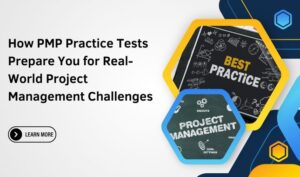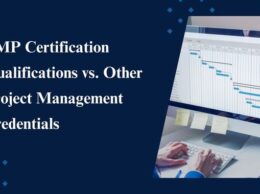Introduction
In the demanding world of project management, success hinges on your ability to think critically, make informed decisions, and adapt to diverse challenges. For aspiring Project Management Professionals (PMPs), preparing for the certification exam is not just about passing; it’s about gaining skills that mirror real-world scenarios. PMP practice tests serve as an invaluable tool in this journey. They are not merely preparatory; they are transformative, offering lessons that extend far beyond the exam room into the day-to-day realities of project management.
Why PMP Practice Tests Are Game-Changing
- Simulating Real-World Decision-Making
PMP practice tests are designed to reflect real-life project management scenarios. Each question challenges you to think critically, weighing options to determine the most effective solution. This mirrors the decisions project managers face daily, fostering the ability to prioritize under pressure and solve complex problems. - Mastering Time Management
Time management is vital both in the PMP exam and real-world projects. The exam’s 180 questions must be tackled within 230 minutes, demanding strategic pacing. By practicing under timed conditions, you build endurance and the capacity to allocate your time wisely—essential when managing project deadlines. - Building Confidence Through Familiarity
The structured environment of practice tests minimizes the intimidation factor. Familiarity with the exam format, question types, and structure makes the actual test less daunting, translating to greater confidence when tackling project uncertainties. - Deepening Conceptual Understanding
Practice tests don’t just highlight correct answers; they offer detailed explanations, connecting each answer to the PMBOK Guide and Agile methodologies. This enhances your understanding of core principles, equipping you with knowledge applicable to both predictive and adaptive project management approaches. - Identifying and Addressing Weak Areas
PMP practice tests provide feedback on your performance, pinpointing gaps in your knowledge. This targeted insight allows you to focus your preparation effectively, akin to identifying and resolving bottlenecks in a project lifecycle.
How PMP Practice Tests Bridge the Gap Between Theory and Practice
- Realistic Problem Solving
Many practice tests incorporate situational questions that require applying theoretical concepts to practical challenges. For example, questions may simulate conflict resolution within a team or adapting schedules when resources shift unexpectedly. These scenarios prepare you to handle such complexities in your career. - Enhanced Communication Skills
Questions related to stakeholder management and team dynamics improve your ability to communicate effectively. Practice in articulating solutions to various audiences is invaluable when navigating real-world project environments. - Agility in Hybrid Methodologies
Modern projects often require a mix of Agile and traditional Waterfall methods. PMP practice tests expose you to hybrid scenarios, helping you develop the flexibility needed to succeed in these blended frameworks.
Conclusion
PMP practice tests don’t just make you exam-ready; they shape you into a resilient, knowledgeable, and adaptable project manager. The process builds the soft and hard skills required to handle uncertainty, manage diverse teams, and drive projects to success under dynamic conditions.
FAQs
Why are PMP practice tests important for certification preparation?
They simulate real exam conditions, helping you master time management, understand question types, and build confidence.
How do PMP practice tests improve real-world project management skills?
By mirroring real-life scenarios, they enhance critical thinking, problem-solving, and adaptability.
What’s the best way to use PMP practice tests?
Start with topic-based quizzes, track performance, and gradually move to full-length timed tests for comprehensive preparation.
Are there free PMP practice tests available?
Yes, platforms like iZenBridge and EduHubSpot offer free PMP mock tests to get you started.
How many practice tests should I attempt before the PMP exam?
Aim for at least three full-length mock exams to ensure readiness and identify any knowledge gaps.









